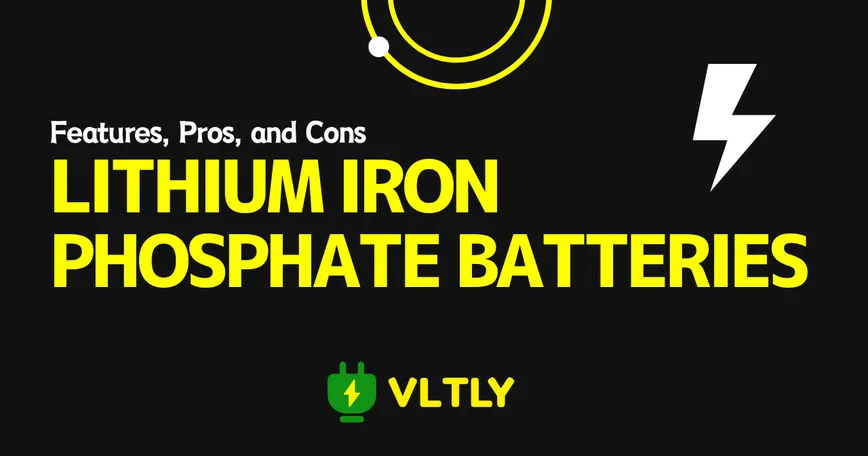
Features, Pros, and Cons of Lithium Iron Phosphate Batteries
This article explains the features, pros, and cons of lithium iron phosphate batteries, which are becoming a standard in portable power supplies.
Posted at: 2024.7.18
What is a Lithium Iron Phosphate Battery?
A Lithium Iron Phosphate (LiFePO4) battery is a type of lithium-ion battery characterized by its use of lithium iron phosphate (LiFePO4) as the cathode material.
Compared to other lithium-ion batteries, LiFePO4 batteries are known for their superior safety, long lifespan (battery cycle), high stability, and low risk of explosion. These attributes make them popular in electric vehicles and portable power supplies.
Why are LiFePO4 Batteries Gaining Attention?
Traditionally, cobalt-based and nickel-cobalt-manganese (NCM) lithium-ion batteries have been the norm. However, as batteries have increased in size and capacity, issues such as battery fires, explosions, and degradation have become significant concerns.
LiFePO4 batteries have started to be adopted primarily in large battery applications to address these issues associated with conventional lithium-ion batteries.
Advantages of Lithium Iron Phosphate Batteries
High Safety
LiFePO4 batteries possess higher thermal stability compared to other lithium-ion batteries.
Lithium-ion batteries are widely used in everyday devices like smartphones, which are often exposed to harsh conditions such as extreme heat. LiFePO4 batteries significantly reduce the risk of overheating and fire compared to conventional lithium-ion batteries. They can maintain battery performance even in high-temperature environments.
Additionally, lithium iron phosphate is chemically stable, making these batteries less prone to explosion due to overcharging or physical impact. Consequently, they are widely adopted in applications where safety is paramount, such as residential energy storage systems and electric vehicles. In recent years, they have also become the mainstream battery for portable power supplies.
Long Lifespan
A significant issue with traditional lithium-ion batteries in the portable power supply sector is the short battery cycle lifespan.
Cobalt-based and NCM lithium-ion batteries typically last around 1000 charge cycles. In contrast, LiFePO4 batteries can maintain 80% performance for about 4000 charge cycles, which is several times longer.
4000 charge cycles mean that even with daily charging and discharging for 10 years, the battery can retain 80% of its capacity, greatly extending the cost-efficiency of portable power supplies.
High Cost-Performance
LiFePO4 batteries can be manufactured more affordably than cobalt-based and NCM lithium-ion batteries because they do not use rare metals like cobalt and nickel. Additionally, their long lifespan contributes to their high cost-performance in the long term.
Especially in portable power supplies, where not only the battery but also the casing and converters involve significant costs, choosing a LiFePO4 battery reduces the need for frequent replacements, lowering the overall running costs.
Disadvantages of Lithium Iron Phosphate Batteries
Low Energy Density = Heavy and Large
Lithium iron phosphate batteries have a lower energy density compared to other lithium-ion batteries. To achieve the same capacity, they require a larger size, making the products larger and heavier, which reduces portability. This is a significant disadvantage for portable power supplies where portability is important.
Lithium Iron Phosphate Batteries are the Best Until Safer All-Solid-State Batteries Become Practical
Major manufacturers like Toyota and Nissan are aiming to commercialize next-generation all-solid-state batteries (ASSB) by around 2030. Nissan announced that "the cost of ASSB will be reduced to $75 per kWh by 2028, and further to $65 to make the cost of EVs comparable to gasoline cars"1. Currently, 1 kWh class portable power supplies typically cost over 200,000 yen, so a significant cost reduction is expected.
Lithium iron phosphate batteries are estimated to last around ten years, so a portable power supply purchased now should last until all-solid-state battery portable power supplies become commonplace. All-solid-state batteries are considered the ultimate for portable power supplies, so lithium iron phosphate batteries are the best choice as an interim solution.